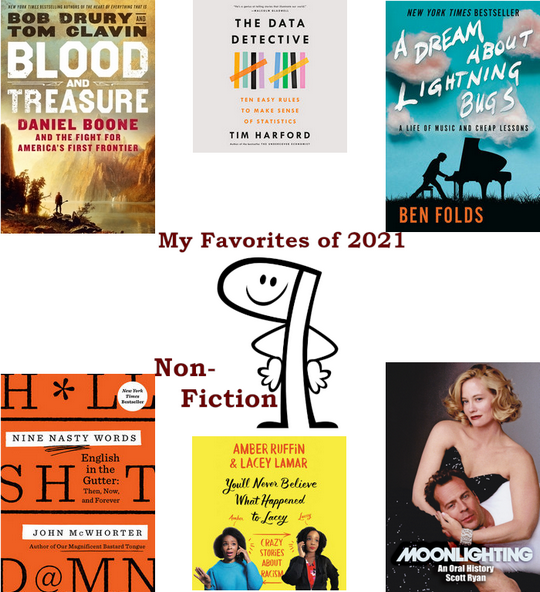
My 2021 Wrap up continues and now we’re on to the Non-Fiction list. While I liked a number of works that didn’t make this list, I felt strange calling them a “favorite.” So, we have 6 instead of the nigh-obligatory 10 (Hartford had two books on the list, but I wouldn’t let someone else do that on another list, so I trimmed one from this). Like last year, I was surprised that I’d given so many of these 3 or 3 1/2 stars. But these are the ones that stuck with me through the year; the ones I cited in conversation; that I thought about when reading something else or watching something on TV. Really, that’s what’s important, right?
As always, I only put books that I’ve read for the first time on this list. I don’t return to NF books (outside of looking up things for one or three points), but occasionally I do—for example, The Pleasures of Reading in an Age of Distraction by Alan Jacobs would get a permanent spot on this list, were it not for this rule.
(in alphabetical order by author)
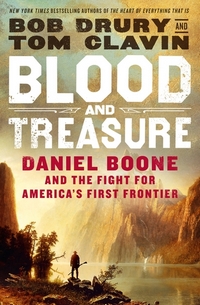 Blood and Treasure: Daniel Boone and the Fight for America’s First Frontier
Blood and Treasure: Daniel Boone and the Fight for America’s First Frontier
by Bob Drury and Tom Clavin
My original post
This book de-mythologized—and then re-mythologized (to a point) Daniel Boone, who ended up being more interesting (and more human) than I anticipated. Some of the writing was fantastic and you could forget you were reading history (there were other parts that were so dry it could be nothing else). The book looks at both Boone and the Fight for the Frontier—against Indians, French, and the English. It’s the kind of history book that convinces me that I should read more history—not to better myself, just because it’s worthwhile.

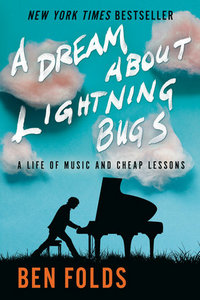 A Dream About Lightning Bugs: A Life of Music and Cheap Lessons
A Dream About Lightning Bugs: A Life of Music and Cheap Lessons
by Ben Folds
I haven’t written a post about this book yet, so it’s hard for me to try to give a thumbnail here. I enjoyed getting to know Folds a bit better—warts and all (and he’s not afraid to bring up some of the warts). Where this book really impressed me was when he talked about music—performing, creating, listening, what it means to a listener/performer. I’ve already returned to some of that material to reread—I’m not a musician, but I appreciate someone that thoughtful about it. It’s inspirational.
Also, his stuff about Shatner is just great.

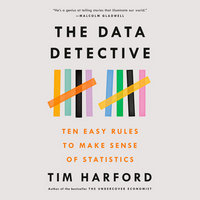 The Data Detective: Ten Easy Rules to Make Sense of Statistics
The Data Detective: Ten Easy Rules to Make Sense of Statistics
by Tim Harford
My original post
This is one of those books I should go back and re-read, taking copious notes to help me internalize the points. We’re subject to people at work, on the news, online, and from the government throwing numbers, statistics, and “studies show” so often that it can be overwhelming. So much so that many people blindly accept everything they’re told from that formula, or doubt it all. Hartford’s point is that we should be skeptical, but to use that skepticism to dig out the real meaning behind the study/statistic and then use it for our advantage as a voter, citizen, employee, or person (or all of the above). Crystal clear writing, easily applicable, and more useful than most books on related subjects.
Actually, I think I just convinced myself to re-read it soon.

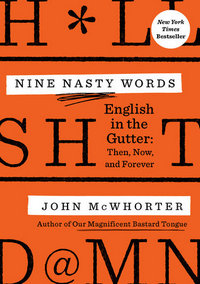 Nine Nasty Words: English in the Gutter: Then, Now, and Forever
Nine Nasty Words: English in the Gutter: Then, Now, and Forever
My original post
I’m a sucker for an entertaining look at language, and that’s what McWhorter delivered here. While I try to eschew the use of profanity, we’re surrounded by it so much more than we likely realize, so I might as well learn more about it, right? This was a solid look at the background and development of these “Big 9” words—in particular, I enjoyed McWhorter’s demonstration of how the words function as various parts of speech, as well as the varying nuances of meaning.

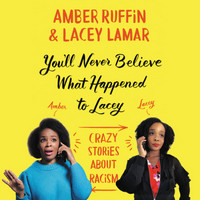 You’ll Never Believe What Happened to Lacey: Crazy Stories about Racism
You’ll Never Believe What Happened to Lacey: Crazy Stories about Racism
by Amber Ruffin, Lacey Lamar
My original post
I talked about this in my favorite audiobook post, too, never fear—this’ll be the last time I bring it up this week.
Early on, Ruffin writes:
Twice a week, I get a text from my sister that says, “Can you talk?” It’s my favorite because I know I’m about to be transported to a place that exists in real life and fantasy: the place where coworkers will put their whole hand in your hair, talking ’bout “It’s fluffy like a dog.” I realize this sounds terrible, but it’s like watching Dateline. You can’t believe it was the GIRLFRIEND who killed the HUSBAND! It’s the edge of reality. Technically, it happens, but it is barely plausible. Excited, I steal away to the elevator banks at work and listen to Lacey tell me a new horror story. It’s fantastic. As I stand there, mouth agape, listening to some new fresh hell, I am always struck by the fact that these stories will only exist in this phone call. Some will go on to become stories once the topic turns to “racist people at work” one night when Lacey is hanging out with her friends, but she’ll forget most of them because of the sheer volume. The. Sheer. Volume.
That’s what this book is, a distillation of that volume. A compilation of the best/worst of those stories. They are tragic. They are sobering. They are frequently pretty funny. But only in the way they’re told. Lamar and Ruffin share these stories with an air of “you have to laugh or you’ll cry.” The kind of resigned laughter when you realize that your situation isn’t going to get better any time soon, so you might as well find the pleasure in it. A lot of this is hard to listen to/read—but it’s usually worth it. There’s also a decent level of “a spoonful of sugar helps the medicine go down” running throughout this.

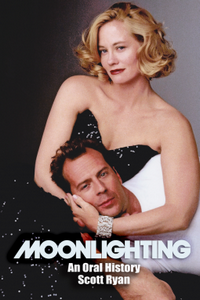 Moonlighting: An Oral History
Moonlighting: An Oral History
by Scott Ryan
My original post
It’s probably the most fun I’ve had with a book this year. Somehow, Ryan’s able to capture a little bit of the flavor of the show while getting into the history. Moonlighting was a revolutionary show, and he is able to talk to just about every significant figure involved in the creation and production of it for this history. He chronicles the ups, downs, and all-around zaniness. There are deep-dives on important episodes and or tricky scenes, as well as broader looks at themes, storylines, characters, etc. It’s easy to forget just how magical this show was, but spending some time with Ryan will remind viewers of a certain age of just what a ground-breaking, oft-controversial, and entertaining series it was.

![]()



